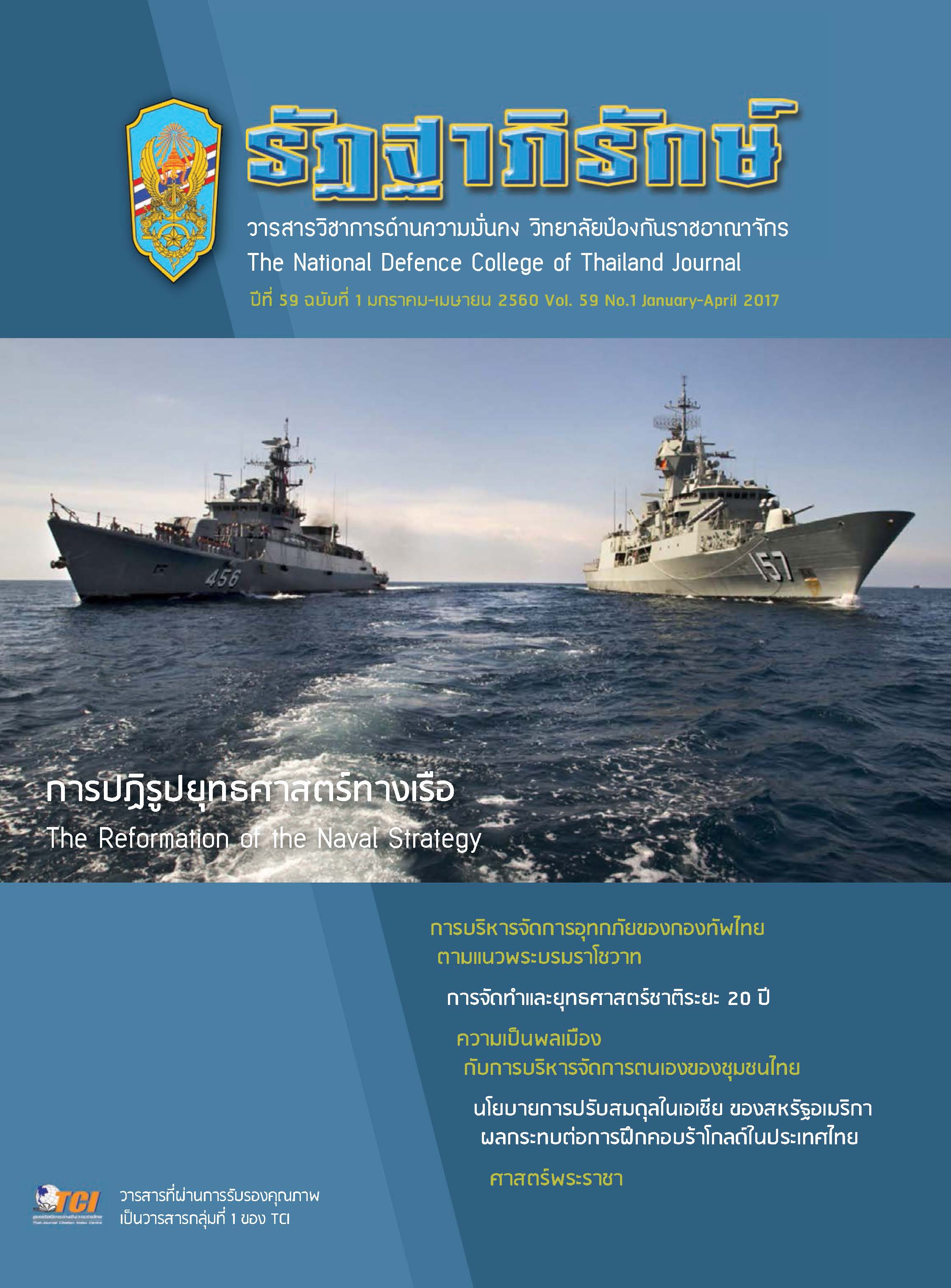The Reformation of the Naval Strategy
คำสำคัญ:
explosive opening, mammal, Mucuna macrocarpa, pollination, Asiaบทคัดย่อ
The research title “The Reformation of the Naval Strategy” has 2
objectives, 1) to study and analyse Thailand Naval and Maritime Strategies
and study their imbalances and relevancies. 2) To study how to reform
the current Naval Strategy to meet the new strategic environment and
maritime interests and to determine the suitable Naval and Maritime
Forces. This research is a Qualitative Research writing in a Descriptive
manner.
Research findings: The Thailand Naval Strategy is imbalanced
between Force Planning and the Use of Force. The Naval Strategy planners
used to formulate the strategy only in the aspect of the force planning
without the use of force aspect. This causes a lacking of the future use
of force and Future Naval Operational Concepts (FNOC) in the formulation.
The Threat-Based Strategic Planning must be transformed to the
Capability-Based Strategic Planning to meet current strategic security
environment especially in the existing of ASEAN Community rather than
imposing threat and distrust among all neighbour countries.The
introduction of International Relations, Preventive Diplomacy, Naval
Diplomacy and Confidence Building Measures (CBMs) should be included
in the formulation process of making Naval Strategy and Naval
Policy which related to the Government Policy.
Selective Engagements will be the concept of implementation
clearly applied to all neighbours and countries from peacetime to
the time of conflict or war according to the Spectrum of Conflicts.
The Ring-Fenced Strategic concept of area divisions applying the
Employment Contexts (EC) to each area with different political and
military relations can be the new strategic formulation approaches
to make force planning more effective. The findings propose new
models of rebalancing and reformation of Naval Strategy according
to the Pic. 1, Pic. 2 and Pic. 3.
Recommendations: Royal Thai Navy should cooperate with
National Security Council in order to generate the new reform of
the Naval Strategy through this thesis findings emphasize the
relevancy of both Naval Strategy and National Maritime Security
Plan 2015-2021 regarding the Future Use of Naval and Maritime
Forces and the possibility of the combination into only one strategy
of Maritime Strategy including the making of Future Naval
Operational Concept (FNOC) implementing the Naval/Maritime
Strategy will make the strategy balance and support future force
planning effectively.
ดาวน์โหลด
เผยแพร่แล้ว
ฉบับ
ประเภทบทความ
สัญญาอนุญาต
บทความ ข้อเขียน หรือความคิดเห็นในนิตยสารนี้เป็นของผู้เขียน ไม่ผูกพันกับวิทยาลัย ป้องกันราชอาณาจักรและทางราชการแต่อย่างใด



